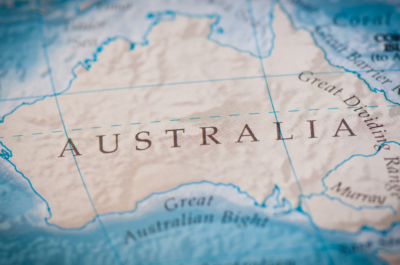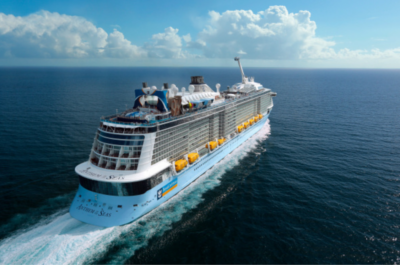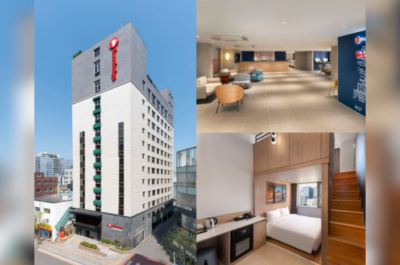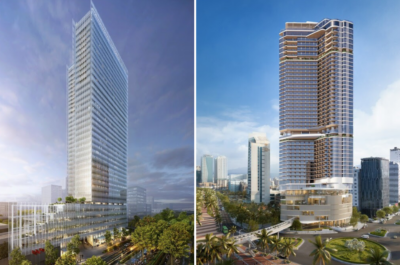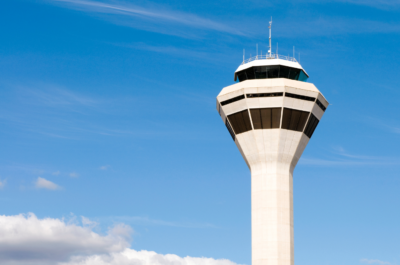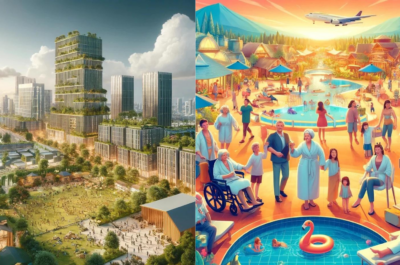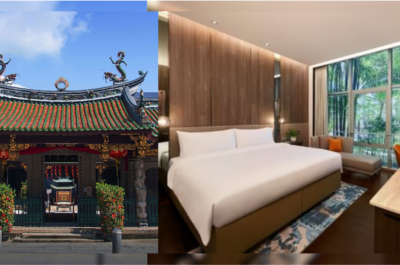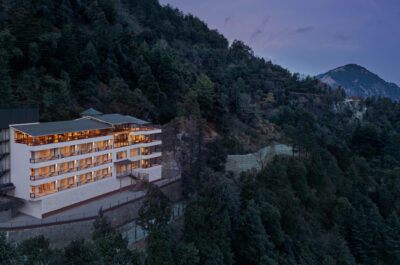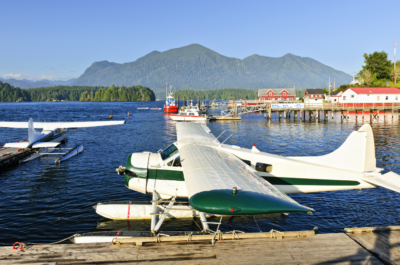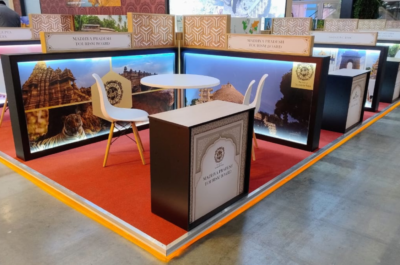…
Don`t you just love reading about the huge numbers being produced on the Internet? But the fact is that there are still many disillusioned hoteliers, especially those with independent hotels, who have not yet realized their fair share of business from this new medium. Obviously, it`s no longer sufficient to simply have a pretty web site.
A web site, like a good hotel operation, needs to function well in order to be productive. In order to function well, it needs to be designed to be highly visible to search engines and to sell online reservations. You`ve heard it a hundred times; there are some definite do`s and don`ts which go way beyond having a pretty design. This is called web site optimization .
By now, most hoteliers have learned the hard way that designing a productive hotel web site is not a task for the uninitiated web designer; it is really scary how many web designers do not know nor use basic Internet search and hotel marketing principles when designing their web masterpieces.
It`s helpful to understand that a web site has two faces; one which visitors see and another unseen technical face which is built into the site such as tags, links, and navigation aids. A productive site should have a pleasing design, with text and graphics designed based upon hotel marketing principles, and is technically designed to attract higher search engine popularity rankings and text which turns lookers into bookers.
Web site optimization is equally as important as search engine optimization. Unfortunately, too many web designers, with small and large companies, produce dysfunctional sites and expect to cure their deficiencies with search engine optimization. Search optimization and `pay-per-click` on a dysfunctional site is a waste of time and money.
Unlike an informational or non-retail site, a hotel site must be designed to be an interactive selling piece with good search engine compatibility. But, what exactly is a good selling piece.
Imagine a book with all the pages bound out of sequence. My guess is that most people would give up reading it out of sheer frustration. So, the first rule of design is logical navigation and consistent page links. Forget the fancy page titles. Many search engine spiders look for a good logical navigation scheme when ranking your site. Web sites, with hidden page links and more graphics than text, just don`t fair well on the net.
Remember that search engine spiders only read text; they are blind to graphics and photos. And they don`t read all the text; this makes the first few lines of text most important. This text should reflect the major key words and phrases which will be set up for searches, as well as the tags which reside behind your site.
Search engines constantly alter and improve their algorithms; the popularity of your site can actually improve your site`s ranking for organic searches. Your site`s popularity can be improved with a good link strategy on your site. Internal and external links are sometimes the difference between mediocre and superior site rankings. Linking your site to other more popular sites is a good step to improve your site`s popularity and production.
Basic Hotel Marketing
You`ve heard it before, `content is king` on a hotel web site. From a pure selling standpoint, text is far more important than photography and fancy graphics. Oh sure, good photography does attract the eye, but well written text is what adds credibility to the photography; well thought-out, well written text sells.
Why do so many sites have text which appears to be an after-thought; saturated with meaningless, often irrelevant, text? In other cases, we see hotel web sites with far more photography and other graphics than text; pretty, but not very effective. Why the heck do they do that?
The basic criteria for selling hotel rooms have not changed; location, facilities, and entertainment (things to do). Most consumers consider location first. We know that most hotel searches are destination based. The only possible exception to this could be destination resort hotels; but then again, the destination is their location. Why do so many hotel web sites fail to adequately describe their location, with distances to/from businesses and attractions?
A hotel`s address is only part of its location; selling your location involves so much more. Location always looms important; few guests come to your area just to stay at your hotel. Your hotel is almost always a means to an end. Whether visiting friends or relatives, nearby businesses, or beach and/or other tourist destinations, the first criteria for selecting a hotel is always its location.
Even some poorly designed hotel web sites do a good job describing the hotel`s facilities and amenities, but totally neglect selling the hotel`s location. Your hotel`s accessibility and location are keys to selling rooms on the Internet.
Are your facilities important? Of course, but some information is more important and relevant than others. When describing your facilities and all the wonderful amenities your hotel offers, remember that most site visitors will not read every word on your site. It makes common sense then, to describe them in priority order; relevant priority to a guest`s needs and wants. The first two to three paragraphs are most read; this principle also applies to bulleted lists.
Content is king. The most common problem with many hotel web sites is that too many are designed to please the wrong people; hotel owners and managers instead of potential guests. Your web site should be an interactive selling piece, not a fancy brochure.
Graphics can enhance but can also destroy an otherwise good web site. You may love the morphing photographs and the fancy designs created by flash graphics, but do they really serve the site`s true purpose; to sell rooms? They slow download times and are invisible to search engines; what purpose do fancy graphics serve?
Stephan Covey, in his great book `7 Habits of Highly Effective People` identifies `Begin with the end in mind` as one of those habits. In this case, the `end` is to develop online reservations; not to entertain your site`s visitors. I have a mentor who constantly told me to sell hard, but never oversell. Too much irrelevant information on your site is more likely to turn-off rather than turn-on your site`s visitors.
`Real-time` Online Reservations
Today`s web site booking engines enable your site`s visitors to get the instant gratification they seek, by allowing them to make a real-time reservation directly on your site. Most of these sales wonders are more than affordable for almost any sized property.
Let`s face it; today`s online addict is very different from traditional non-technical consumers. As the Internet matures, consumers are becoming more indoctrinated to this exciting technical age. This, obviously, is one of the primary reasons for the huge growth of online travel.
Booking engines have leveled the playing field for independent hotels in their quest to compete with their franchised hotel neighbors. Independent hotels can now provide the same instant gratification to their guests; the same exposure and the ability to make a reservation online.
I`ve heard the argument; `we want people to call us because it offers more personal service`. That`s kind of like taking away people`s cars because you would rather have them use bicycles. Would you really like to go back to busy phone lines and unanswered phones? The inability to make an instant reservation turns-off most online visitors. Web site booking engines offer your site`s visitors a choice. Is that worth $150 per month; the cost of many booking engines? You bet it is.
Designing or Re-designing Your Web Site
If you already have a web site, and it`s not living up to your expectations, get a hotel emarketer to review and evaluate it. Don`t be fooled by companies which measure your site`s success by the number of `hits` your site receives. I don`t know of any banks which accept deposits of hits.
Unique-user visits are a less deceptive gauge, but if your site is not converting lookers to bookers, the site probably needs fixing. Most sites can be fixed without starting from scratch.
An inexpensive review of your web site, by the `fresh eyes` of an independent emarketer, can reveal affordable changes to make your site productive.
If you still don`t have a web site, you probably didn`t read this article, but in case you did anyway, what are you waiting for? In case you are shopping around for the best company to handle this task, here are a few tips.
First, find a company with a history of designing successful `hotel` web sites. There are many hotel web sites, designed by techies that are totally dysfunctional. Seek someone with hotel marketing knowledge and a technician who knows search engine requirements.
Find a company that understands that success means `reservations` not just unique users visiting your site. Success is increased reservations; pure and simple. Find someone who will take personal responsibility for production results. Since your site will need updates and good ole fashioned tweaking from time-to-time, find someone who is responsive to your site`s needs.
Don`t believe that only large companies have the expertise to design an effective web site. Many times, large companies only delegate that design task to a limited experienced designer on their staff. It`s not the size of the company; it`s the size of their savvy that counts.
Shop around; there are many qualified hotel site designers. Understand that hiring a site designer is like adding a new person to your sales staff. This person will be responsible for up to a third of your total business. Your web site is serious business.















